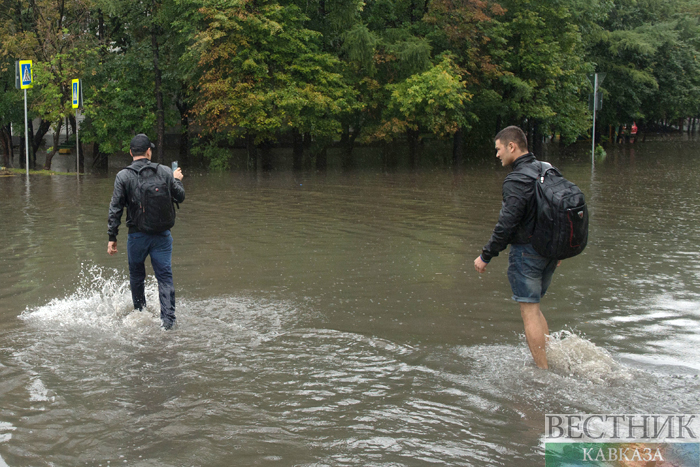Reports by the Intergovernmental Panel on Climate Change (IPCC) in recent years have consistently emphasized the urgency of climate change. Unfortunately, according to the panel's projections, the world seems far from limiting global warming to 1.5 degrees Celsius (2.7 degrees Fahrenheit). These projections show that the planet is heading toward an ecological catastrophe. This demonstrates that climate change must be put at the center of the international agenda, Deputy Minister of the Republic of Turkey's Ministry of Environment and Urbanization, chief climate change envoy Mehmet Emin Birpinar writes for Daily Sabah.
In order to maintain the momentum gained in Glasgow and transmit it to COP27 in Sharm El Sheikh, many countries participated in the High Level Ministerial Dialogue on Climate Change, organized by the Danish Ministry of Climate, Energy and Utilities on May 12-13. Ministerial climate envoys and representatives of civil society organizations met in Copenhagen to review the progress made on the climate agenda since November's COP26. The high-level meeting in Denmark gave the countries the opportunity to address the issues they consider important before the technical sessions held in Bonn, Germany, which set the agenda for the COP meetings. The agenda of the meeting was tackled under four headings in parallel with the decisions taken at COP26: Adaptation to climate change, loss and damage, reaching the 1.5-degree target and mobilizing financing.

Loss and damage
Another crucial issue is loss and damage, as expressed at the Copenhagen meeting. Especially the small island states, which have experienced the negative effects of climate change in the strongest way, demand compensation for the loss and damage they have suffered for a long time. During negotiations, developing countries often seek to advance the agenda of working groups and cooperation networks for loss and damage. In addition, although their demands on this issue have not been met so far, developing countries demand a special financial mechanism for loss and damage. Developed countries, on the other hand, prefer to deal with the issue of loss and damage only in the context of technical assistance.
Finance was a common topic in all sessions of the Copenhagen meeting. The need to set a new numerical climate finance target after 2025 was emphasized by many participants. However, although reaching the climate finance amounts determined by the United Nations Framework Convention on Climate Change (UNFCCC) process has practical and symbolic importance, it is clear that these amounts are not enough to decarbonize the world. The Organization for Economic Co-operation and Development (OECD) estimates that the world needs $6.9 trillion annually by 2030 to meet climate and development goals. For this reason, there is a need to focus more and more on a formula that will turn “billions into trillions” in climate finance.
Another key point of the High-Level Ministerial Meeting in Copenhagen was access to climate finance. Many participants, especially from least-developed countries and small island states, expressed their concerns that the accreditation and payment procedures required to access the financial mechanisms of the convention, such as the Green Climate Fund, are long and cumbersome. Such burdensome and complex access procedures are clearly not up to speed with the urgency of climate change.

The Adaptation Fund, which aims to help developing countries adapt to climate change, is an important financial mechanism of the convention. The beneficiary countries want the Adaptation Fund to be more flexible to make it easier to reach, especially for the countries most vulnerable to climate change. Therefore, if international climate funds can facilitate access procedures, developing countries' access to climate finance will be greatly improved.
Other issues
In Copenhagen, we emphasized the need to innovatively update the international governance of climate change, redesigning it as a system in which no country is left behind. At the meeting, we underlined that the existing international cooperation mechanisms and the sharing of lessons learned by countries are highly significant for the success of the Paris Agreement in practice.
It should be noted that the meeting in Copenhagen took place in a difficult international context. The recent increase in energy prices triggered by the latest incidents on the international scene has worried many people. Some countries see the energy crisis as an opportunity to accelerate the transition away from fossil fuels to renewable energy. On the other hand, there are also countries in the Glasgow Climate Pact that state that decisions about coal need to be rethought.
Despite differences of opinion on many issues, the participants of the Copenhagen meeting agreed that mitigation efforts should be strengthened in order to close the emissions gap and reach the 1.5 degrees Celsius target. While developed countries agree to lead this process, all countries agree that international cooperation is needed to make the necessary contribution to global climate change.






